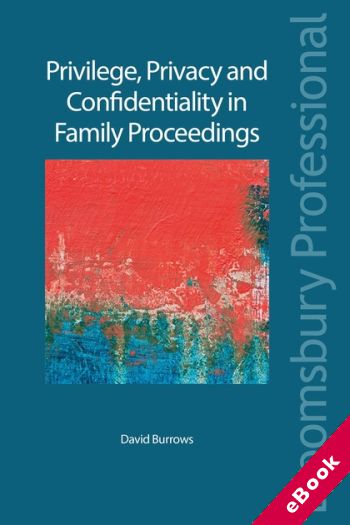
The device(s) you use to access the eBook content must be authorized with an Adobe ID before you download the product otherwise it will fail to register correctly.
For further information see https://www.wildy.com/ebook-formats
Once the order is confirmed an automated e-mail will be sent to you to allow you to download the eBook.
All eBooks are supplied firm sale and cannot be returned. If you believe there is a fault with your eBook then contact us on ebooks@wildy.com and we will help in resolving the issue. This does not affect your statutory rights.
The focus of Privilege, Privacy and Confidentiality in Family Proceedings is the key issues and principles of privilege, privacy and confidentiality that arise in family court proceedings.
Confidentiality arises when someone has knowledge of confidential material and that the law considers it to be fair for the confidant to be prevented from passing on that information. Privacy – now through the prism of article 8 of the European Convention on Human Rights 1950 – refers to material to which only an individual personally has access. There is a public interest maintaining confidentiality, subject to narrow exceptions. These subjects are central to family and children proceedings.
To look at confidentiality, privilege and privacy from the point of view of the family law practitioner – judge, solicitor or barrister, doctor or social worker – the law must be seen as part of the mainstream of the common law. Is a child entitled to confidentiality; or is it correct, as Working Together guidance says, that the mature child's confidences should be 'shared'? When can privilege be overridden; and when does it not apply? Does without prejudice privilege cover a mediator; and when are closed materials procedures appropriate in children proceedings?
These and many more questions are covered in this book.